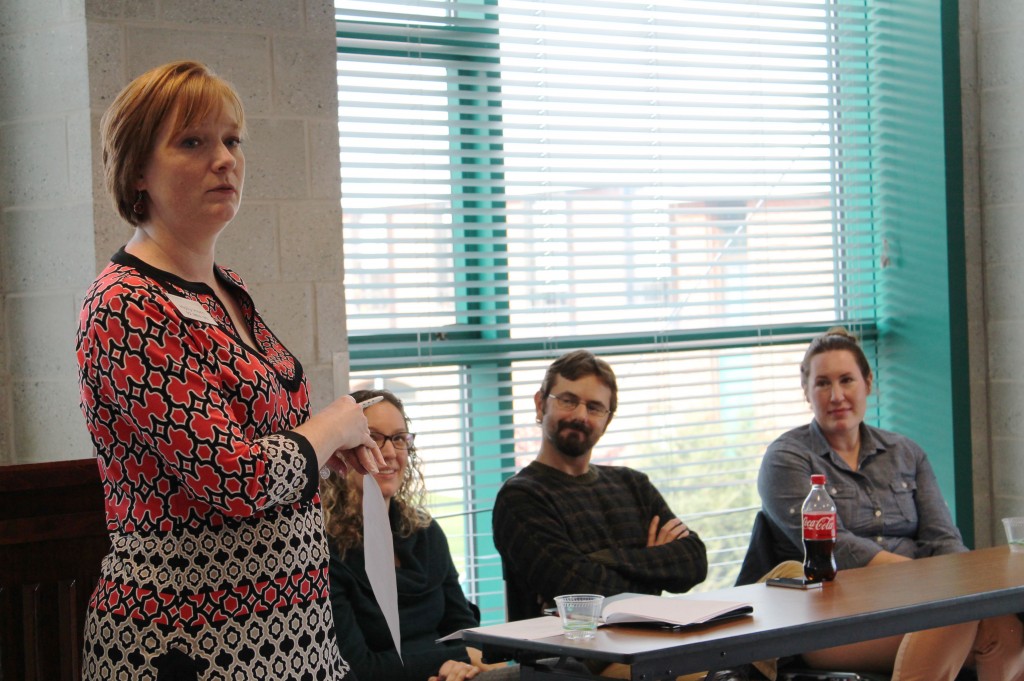
Elizabeth Robinson had just a few moments after her flight to splash water on her face and gather her thoughts before meeting the interviewer — the person she had spent months preparing to meet. Not only would she have to make an outstanding first impression, but she had to ride with the interviewer to the hotel before even sitting down to the formal meeting.
For Robinson, understanding how to navigate the interview process played a vital role in the success of her academic job search, and she shared this knowledge on Friday to help others.
Professors Gretchen Mahler, Joshua Reno and Elizabeth Robinson were all hired by Binghamton University within the past five years. They shared their stories of successes and failures in their search for a career at an academic job search panel in the University Union to a room of graduate students hoping to enter academia as well.
Fleishman Center Assistant Director Holly Horn moderated the panel, which featured discussion about resources for the job search, preparing for interviews and managing time between school and looking for a career.
According to Mahler, an assistant professor in bioengineering, mentors are valuable resources for securing a job in academia by providing guidance from their own experience and connections.
“Find strong mentors and advisers, people whose careers you really want to emulate,” Mahler said. “Ask them for advice, and take their advice.”
Colleagues on the job market can be helpful as well, said Reno, an assistant professor of anthropology. According to him, peers can be in the know about opportunities and the nuances of the current job market.
“I hope that people will talk with each other and form networks and find people they can rely on as they go though this process,” Reno said.
Robinson, an assistant professor in classical archaeology, suggested online resources, such as blogs and forums that help navigate the job market with interview tips, webinars and peer-editing services.
The discussion went beyond being hired; negotiating the specifics of a contract becomes important, according to all three professors. Part of Mahler’s negotiations included supplies and equipment for her lab. For others, negotiations could focus on salary or moving costs.
The journey to a career in academia can be long and full of uncertainty, according to Reno.
“Getting a job in academia is not a guarantee,” he said. “And it is important that grad students understand what they’re in for.”
Robinson added that applicants must be willing to be flexible in their career search.
“You have to make a personal decision as to ‘How many times do I want to try,’” Robinson said. “’Am I willing to take an adjunct position if I don’t get that tenure track’ and do what’s right by you. Make those decisions and be willing to revise them if you need to.”
Gail Musante, part of the Graduate Community of Scholars (GCS), said she hoped the panel would enlighten hopeful academics.
“It’s a different kind of job search process,” Musante said. “So hopefully they will come out with some resources to actually start with.”
Ran Wang, a graduate student studying linguistics, said the panel shed light on the path to a career in academia.
“They answered a lot of questions about the job process,” Wang said. “I now know how much more work I need to do.”
The panel was hosted by the Fleishman Center for Career and Professional Development, Graduate Student Organization and Graduate Community of Scholars.


